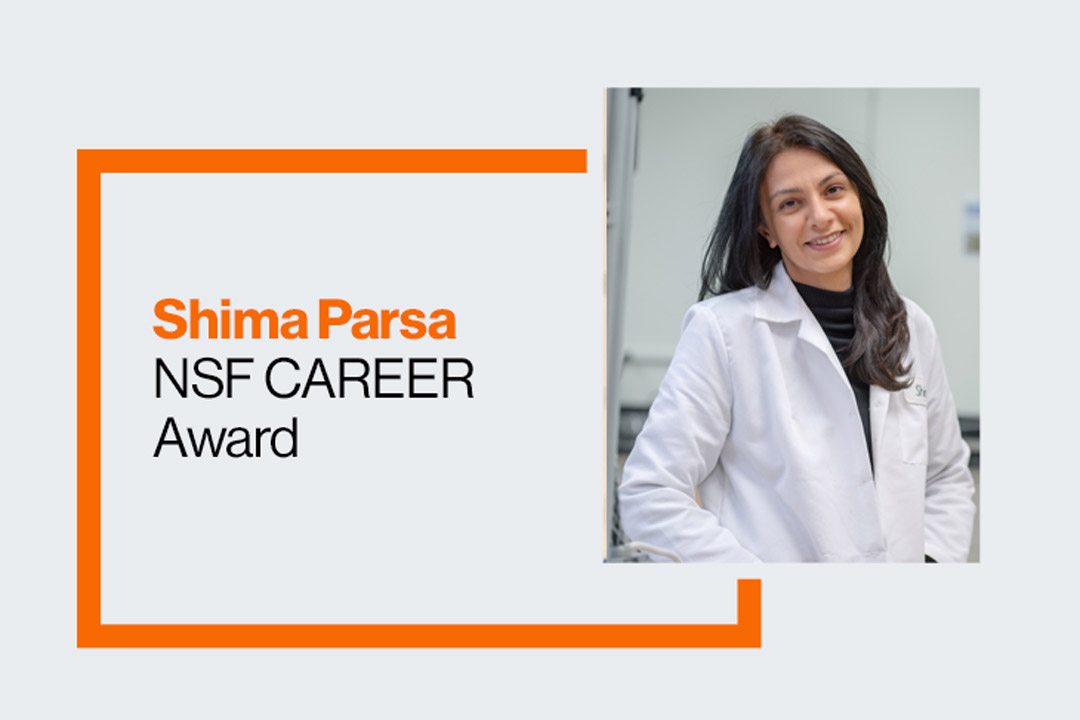The competitive funding will support soft matter physics research and student opportunities

Scott Hamilton/RIT
Shima Parsa received an NSF CAREER Award to support soft matter physics research and student opportunities.
Soft matter physics has broad applications across many industries, and as the field grows, so do opportunities at RIT.
Shima Parsa, assistant professor in the School of Physics and Astronomy, received a National Science Foundation (NSF) Faculty Early Career Development (CAREER) Award to advance her research in experimental physics and bring additional opportunities to RIT students.
NSF CAREER funding supports early-career faculty who have the potential to serve as mentors in research and education while advancing their field. Thousands of proposals are submitted each year, with only about 500 funded.
Parsa investigates how soft particles flow or become trapped in various confined environments by using optical microscopy to quantify the flow, transport, and clogging of the particles.
“The area of soft matter physics addresses many problems that are impossible to study numerically,” explained Parsa. “We create test cases in my lab tuning one variable at a time to figure out how the interactions at the micro scale result in large scale phenomena.”
There are several areas of industry where the research can be applied, from mass production in the food industry, to the chemical industry, to pharmaceuticals.
Students are an essential component to the award research. Parsa will have graduate students learning how to design experiments, build pieces in the lab, and analyze data. The educational component of the funding is also focused on student retention and community building.
“As physicists we are very good at preparing students to go to graduate school, but students aren’t focusing on a lot of soft skills that are required in industry,” said Parsa. “We will look at how students can prepare themselves from day one that they arrive on campus, and at building a community for graduate students while learning how to apply for jobs, build resumes, and pitch ideas.”
Parsa added that most of her students leave her lab and go on to high-salary industry jobs, thus making the emphasis on management and collaboration skills especially important.
“I’m really looking forward to giving the next generation the opportunity to get good jobs,” said Parsa.









